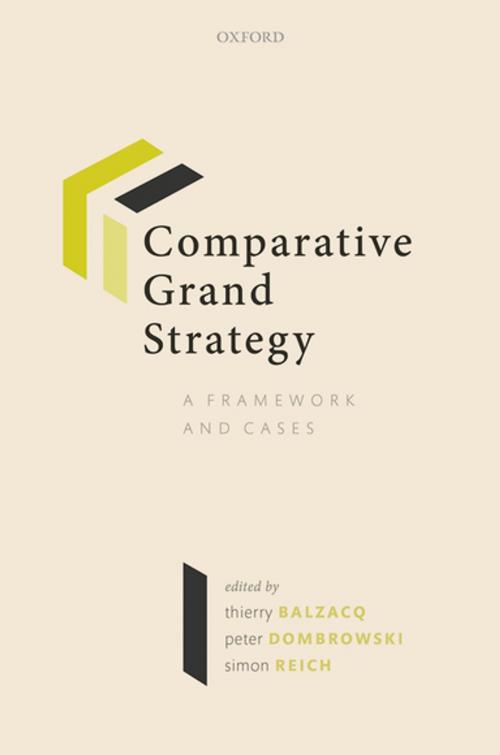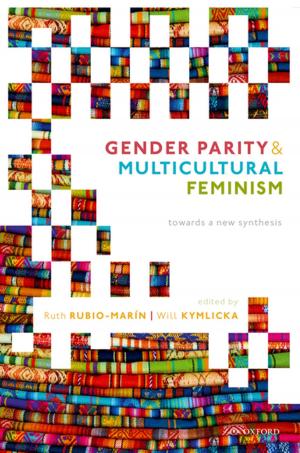Comparative Grand Strategy
A Framework and Cases
Nonfiction, Social & Cultural Studies, Political Science, International, International Relations, History| Author: | ISBN: | 9780192577559 | |
| Publisher: | OUP Oxford | Publication: | May 28, 2019 |
| Imprint: | OUP Oxford | Language: | English |
| Author: | |
| ISBN: | 9780192577559 |
| Publisher: | OUP Oxford |
| Publication: | May 28, 2019 |
| Imprint: | OUP Oxford |
| Language: | English |
This book develops a new approach in explaining how a nation's Grand Strategy is constituted, how to assess its merits, and how grand strategies may be comparatively evaluated within a broader framework. The volume responds to three key problems common to both academia and policymaking. First, the literature on the concept of grand strategy generally focuses on the United States, offering no framework for comparative analysis. Indeed, many proponents of US grand strategy suggest that the concept can only be applied, at most, to a very few great powers such as China and Russia. Second, characteristically it remains prescriptive rather than explanatory, ignoring the central conundrum of why differing countries respond in contrasting ways to similar pressures. Third, it often understates the significance of domestic politics and policymaking in the formulation of grand strategies - emphasizing mainly systemic pressures. This book addresses these problems. It seeks to analyze and explain grand strategies through the intersection of domestic and international politics in ten countries grouped distinctively as great powers (The G5), regional powers (Brazil and India) and pivotal powers hostile to each other who are able to destabilize the global system (Iran, Israel, and Saudi Arabia). The book thus employs a comparative framework that describes and explains why and how domestic actors and mechanisms, coupled with external pressures, create specific national strategies. Overall, the book aims to fashion a valid, cross-contextual framework for an emerging research program on grand strategic analysis.
This book develops a new approach in explaining how a nation's Grand Strategy is constituted, how to assess its merits, and how grand strategies may be comparatively evaluated within a broader framework. The volume responds to three key problems common to both academia and policymaking. First, the literature on the concept of grand strategy generally focuses on the United States, offering no framework for comparative analysis. Indeed, many proponents of US grand strategy suggest that the concept can only be applied, at most, to a very few great powers such as China and Russia. Second, characteristically it remains prescriptive rather than explanatory, ignoring the central conundrum of why differing countries respond in contrasting ways to similar pressures. Third, it often understates the significance of domestic politics and policymaking in the formulation of grand strategies - emphasizing mainly systemic pressures. This book addresses these problems. It seeks to analyze and explain grand strategies through the intersection of domestic and international politics in ten countries grouped distinctively as great powers (The G5), regional powers (Brazil and India) and pivotal powers hostile to each other who are able to destabilize the global system (Iran, Israel, and Saudi Arabia). The book thus employs a comparative framework that describes and explains why and how domestic actors and mechanisms, coupled with external pressures, create specific national strategies. Overall, the book aims to fashion a valid, cross-contextual framework for an emerging research program on grand strategic analysis.















